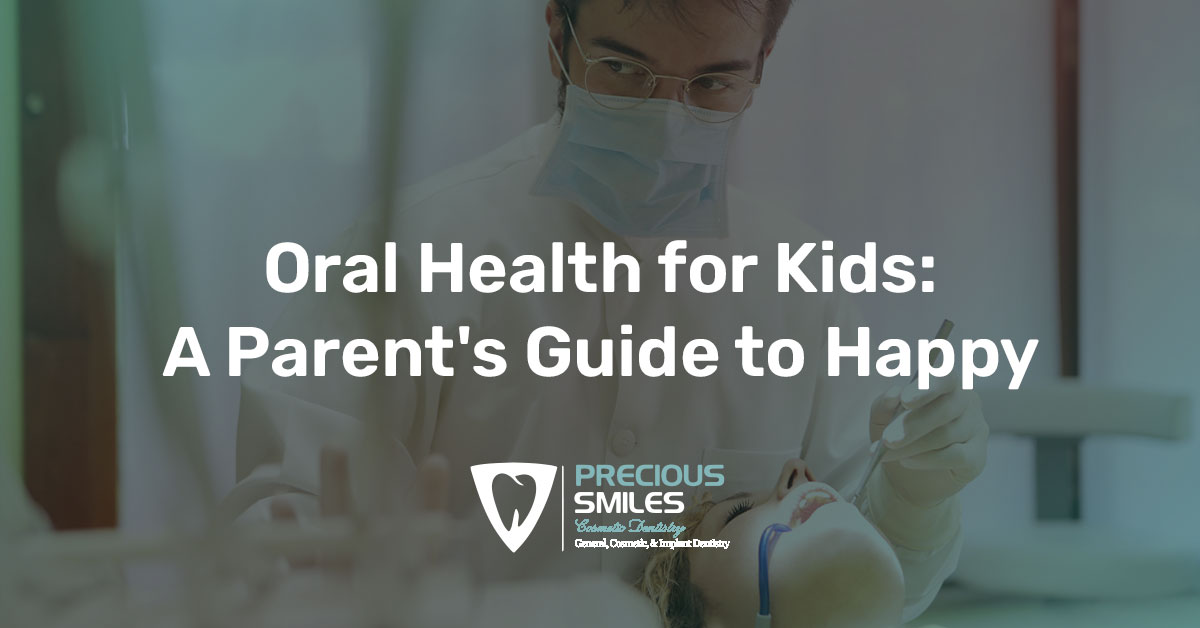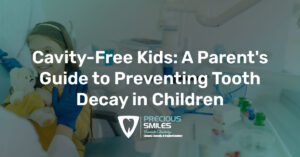As a parent, you play a pivotal role in your child’s overall health, and that includes their oral health. Teaching your kids good dental habits from a young age sets the foundation for a lifetime of healthy smiles. In this blog, we’ll offer guidance on pediatric dental care, including preventive measures and how to address common dental concerns in children.
Start Early: The Importance of Early Dental Care
The American Academy of Pediatrics recommends that a child’s first dental visit should occur by their first birthday or within six months of the eruption of their first tooth. Early dental care is essential for several reasons:
1. Prevention: Starting early allows your child’s dentist to monitor their oral development and catch any issues before they become serious.
2. Education: It’s an opportunity for parents to learn about proper oral hygiene for their child’s specific age and needs.
3. Familiarization: Visiting the dentist early helps your child become comfortable with the dental office, reducing fear and anxiety during future visits.

Preventive Measures for Pediatric Dental Care
- Teach Proper Brushing and Flossing: Begin cleaning your child’s gums with a soft cloth even before their teeth erupt. As soon as the first tooth appears, switch to a soft-bristle toothbrush and a rice grain-sized amount of fluoride toothpaste.
- Establish a Routine: Consistency is key. Encourage your child to brush their teeth twice a day, in the morning and before bedtime.
- Balanced Diet: Limit sugary snacks and drinks, as these can contribute to tooth decay. Encourage a diet rich in fruits, vegetables, and calcium.
- Regular Dental Checkups: Schedule regular dental checkups for your child, typically every six months, to monitor their oral health and catch any issues early.
- Fluoride: Discuss fluoride needs with your child’s dentist. Fluoride helps strengthen teeth and prevent cavities.
Common Dental Concerns in Children
- Cavities: Tooth decay is common in children due to sugary diets. Regular checkups can catch cavities early when they’re easier to treat.
- Thumb Sucking: While thumb sucking is normal in infants, if it continues past the toddler years, it can affect tooth alignment. Consult your dentist for advice on breaking the habit.
- Bruxism (Teeth Grinding): Many children grind their teeth, especially at night. In most cases, it’s temporary and doesn’t require treatment, but consult your dentist if it’s a concern.
- Teething: Teething can be uncomfortable for infants. Use a cool, clean cloth or teething rings to soothe sore gums.
- Injuries: Accidents happen. If your child injures their teeth, contact your dentist immediately for guidance.

By following these guidelines and promoting good oral hygiene practices, you can help ensure your child enjoys a lifetime of healthy smiles. Remember, your dentist is an invaluable resource for information and guidance on pediatric dental care, so don’t hesitate to reach out with any questions or concerns. Your child’s oral health is an investment in their overall wellbeing.




